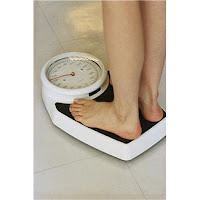 |
| Don't Worry! |
 |
| Don't stop drinking this |
Glycogen is our body's premium source of energy during workouts and is used up when we are in a calorie deficit. It is also important to note that when we have excess calories (over-eat) the extra calories are stored as glycogen first and when our glycogen stores are full the remaining is stored as fat. Glycogen is used as short-term energy storage and fat is long-term.
How big our glycogen storage is varies person to person and it depends on our body and muscle size, but it is something that we can also train our body into becoming more efficient at and actually increase our storage capabilities.
http://www.sagewoodwellness.com/Doc0006.htm
http://www.marathontraining.com/articles/art_39th.htm
http://www.bodybuilding.com/fun/casi3.htm
So for the average person they can store 100grams of glycogen in their liver and 280 grams in their muscles. Glycogen is directly tied to water weight or water retention. For every gram of glycogen our body holds 3 grams of water. When we use a gram of glycogen our body releases 3 grams of water.
When we don't eat enough carbohydrates (energy calories) our body becomes more reliant on our glycogen stores for everyday energy. Hence the main reason we drop more pounds the first week of our diet, and the main reason low-carb dieters lose more weight week one on their diet than people on a balanced calorie diet. To be clear if someone on Atkins loses 5 pounds the first week of their diet, I would conclude half of that is water weight.
This is the same reason why we gain weight after a Spike Day, or because you slipped up and had a "bad day" and over- ate. For example, you've been eating great on your diet for a few weeks but then you go to you grandma's house and she has cooked and baked for you and not wanting to be rude you end up gorging yourself. You go home feeling guilty and step on the scale and you gained 2 pounds. We have all been there, but don't fret my friend. You did not gain 2 pounds of fat, your body simply stored or re-stored the excess calories as glycogen and the 2 pounds you gained was the water stored with it. If you go back to diet, that 2lbs would be gone in 24-48 hours. If you are restricting calories you really never have to worry about fat storage even if you have a weekly spike day, glycogen is always low when in a calorie deficit and glycogen is always stored first before body-fat. Just like by blog post about eating at night. I eat about 75% of my daily calories after 5pm, and my body is a revved up “fat burning machine”!
Blog post on glycogen and exercise
Blog post on fat burning windows
 |
| Marathon runners train to store extra glycogen |
Important things to know:
- The amount of glycogen you store varies on muscle size and glycogen training.
- Glycogen is premium energy stored in muscles and our liver
- Glycogen makes you look leaner and more muscular, and does NOT make look fat.
- The Average person stores 380 grams of glycogen
- A well trained athlete can store up to 880 grams of glycogen!
- Your body stores 3 grams of water for every gram of glycogen.
- 453 grams equals one pound.
- Water weight fluctuates because of glycogen depletion and re-storage
- The average person’s water weight can fluctuate 2-3 pounds every week because of glycogen.
The main point, don’t worry about the scale or water weight. If you make eating well and exercising part of your new lifestyle you will lose weight and you will get in shape. It just takes time and patience.





















